Don't wanna be here? Send us removal request.
Text
Japanese listening practice for beginners - Youtube videos
“キッズボンボン for Children” channel
All of the videos on this list have Japanese subtitles. It is mostly in ひらがな and the words are separated. This and the fact that these videos are aimed for children, makes them great for beginners.
PEACH BOY - MOMOTARO (JAPANESE) Japanese classical stories | fairy tale
KINTARO (Japanese) Japanese classical stories | fairy tale
USHIWAKAMARU (JAPANESE) Japanese classical stories | fairy tale
SHINING PRINCESS (JAPANESE) Japanese classical stories | fairy tale
THE TONGUELESS SPARROW (JAPANESE) Japanese classical stories | fairy tale
THE DANCING KETTLE (JAPANESE) Japanese classical stories | fairy tale
THE STORY OF THE MONKEY AND THE CRAB (JAPANESE) Japanese classical stories | fairy tale
CLACK CLACK MOUNTAIN (JAPANESE) Japanese classical stories | fairy tale
OLD MAN WITH THE LUMP (JAPANESE) Japanese classical stories | fairy tale
OLD MAN FLOWER (JAPANESE) Japanese classical stories | fairy tale
THE YOUNG MONK IKKYU (JAPANESE) Japanese classical stories | fairy tale
THE GRATEFUL CRANE (JAPANESE) Japanese classical stories | fairy tale
URASHIMA TARO (JAPANESE) / うらしまたろう - 浦島太郎(日本語版)Japanese classical stories | fairy tale
THE SNOW WOMAN (JAPANESE) Japanese classical stories | fairy tale
THE ROLLING RICE BALL (JAPANESE) Japanese classical stories | fairy
INCH BOY (JAPANESE) Japanese classical stories | fairy tale
THE CHILD GODS (JAPANESE) Japanese classical stories | fairy tale
THE STORY OF THE ZODIAC (JAPANESE) Japanese classical stories | fairy tale
All of these videos have an English version on this channel. Search for them or click on this playlist. You can use both versions to study what’s being said.
SNOW WHITE (JAPANESE) fairytale | Folktales | bedtime stories
THUMBLINA (JAPANESE) | Folktales | bedtime stories
JACK AND THE BEANSTALK (JAPANESE) | Folktales | bedtime stories
PETER PAN (JAPANESE) | Folktales | bedtime stories
A DOG OF FLANDERS (JAPANESE) | Folktales | bedtime stories
PINOCCHIO (JAPANESE) | Folktales | bedtime stories
PUSS IN BOOTS (JAPANESE) | Folktales | bedtime stories
ALADDIN AND THE MAGIC LAMP (JAPANESE) | Folktales | bedtime stories
THE WOLF AND THE SEVEN LITTLE GOATS (JAPANESE) | Folktales | bedtime stories
CINDERELLA (JAPANESE) | Folktales | bedtime stories
THE LITTLE MATCH SELLER | Folktales | bedtime stories
HE MERMAID PRINCESS | Folktales | bedtime stories
LITTLE RED RIDING HOOD | Folktales | bedtime stories
THE THREE LITTLE PIGS (JAPANESE) | Folktales | bedtime stories
THE ADVENTURE OF TOM SAWYER (JAPANESE) | Folktales | bedtime
THE WIZARD OF OZ (JAPANESE) | Folktales | bedtime stories
THE UGLY DUCKLING (JAPANESE) | Folktales | bedtime stories
ALICE IN WONDERLAND (JAPANESE) | Folktales | bedtime stories
All of these videos have an English version on this channel. Search for them or click on this playlist. You can use both versions to study what’s being said.
10K notes
·
View notes
Text
Inuyasha Japanese Words and Phrases
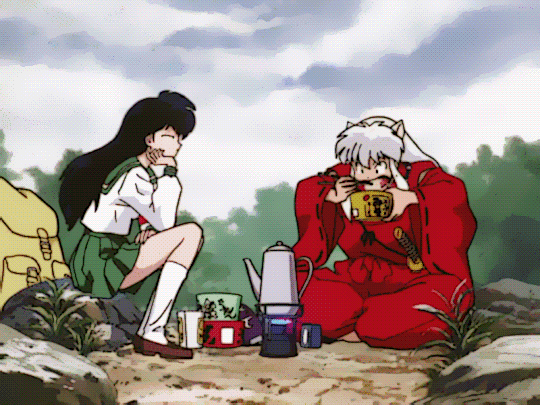
Higurashi Jinja
The "Higurashi Shrine." The name of the shrine Kagome and her family live at.
Hone Kui no Ido
The name of the "bone-eaters well" that is the portal between Kagome's and Inuyasha's worlds. It is part of the Higurashi Jinja.
Sengoku Jidai
The name of Inuyasha's world. "The Warring Period" or "Fudal Japan"
Shikon no Tama
The name of the jewel that Kikyo protected. It gives youkai more power, and can destroy them at the same time.
Shikon no Kakera
The pieces of the Shikon no Tama that Kagome and Inuyasha are searching for. If a youkai gets ahold of one piece, their powers increase.
Youkai
A "monster/demon". Sengoku Jidai is filled with them. Inuyasha's father was a demon, and Fluffy is one.
Hanyou
A half demon. Inuyasha is a hanyou.
Youryoku
Demon strength. Sometimes this is the reason humans go after the Shikon no Tama/Kakera
Shingetsu
The new moon, when Inuyasha turns into a human.
Tessaiga
The name of Inuyasha's sword. It belonged to his father, and usually changes from a rusty, old sword to a powerful one. Though sometimes it fails, like when Inuyasha is in human form. But in English it is known Tetsusaiga.
Hijinkessou
The name of Inuyasha's attack where he uses his own blood. (Blades of Blood)
Sankontessou
A name of one of Inuyasha's attacks. (Iron Revert Soul Shater)
Kitsunebi
The name of Shippou's attack. (Fox Fire)
Kazaana
An "empty hole", the name of the "black hole" like object in Miroku's hand.
Hiraikotsu
The name of Sango's attack, using her boomerang-like weapon.
Shinidamachuu
Name of the serpent like creatures that take and carry souls of the living to Kikyou.
Saimyoushou
Name of the poisonous flying insects of Naraku's. If they enter Miroku's Kazaana, they'll poison him.
Kaze no Kizu
Name of Inuyasha's attack where he "finds" the scent of the wind, and uses the Tetsusaiga to do some powerful damage.
Tenseiga
Name of Sesshoumaru's Sword, which can only be used to save others. Osuwari
This is all Kagome has to say to make Inu-Yasha's head ran into the ground. This happens because of the Prayer-Beads around his neck.
Sankontessou
ai - love
ai shiteru - I love you
anata - you (commonly used)
ano - well... (Kagome uses this a lot)
are - (ah-reh) Huh?
arigato - thank you
arigatougouzaimasu - thank you very much (much more polite)
atashi - me (female version)
baka - idiot/stupid/moron (who doesn't know this word?)
bishoujo - pretty girl (for instance, Sango)
bishounen - pretty boy (for instance, Sesshoumaru)
boku - me/I (used by males and pretty informal)
chibi - little, small
chikuso - dammit
chotto - a little
chuu-gakkou - middle school
daijoubu - in question form it means, "Are you ok". Just said out as a statement means "I'm fine."
dame - bad, no good
demo - but
fuku - uniform. Like Kagome's school clothes.
gakkou - school
gakkousei - student
genki - energy, healthy, happy, entergetic
gomen - I'm sorry. Gomen nasai means I'm very sorry.
hai - yeah, yes, ok
Hanyou - (Han-yoh) Han = half, You = demon. So, half-demon. In this case, Inuyasha is a hanyou because his father was a youkai and his mother was a human.
hentai - pervert
hime - princess
hokora - small shrine. Such as the one that the Bone Gobbling well is concealed in.
houshi - monk. Miroku's a houshi, though a perverted one at that.
iie - no
inu - dog
Inuyasha - Inu = dog, Yasha = Demon, so "Dog-demon". The kanji breakdown of his name translate to "Dog Night Wars/Gang" according to a Japanese woman who I had the pleasure of talking to in Tsukuba City, Japan. (Of course I had to ask her about Inuyasha. ^_^)
itai - owch
ja ne - or just plain out 'ja' mean 'see you later'
jigoku - hell
Kagome - A song for children that many Japanese people know. Besides being the heroine's name, there was some meaning behind it, actually.
Kami - God. Kami-Sama would be talking about god, or some very high ranking person, such as an emperor.
kappa - water demon
katana - Japanese samurai styled sword
kawaii - cute
kaze - wind
ki - spirit, energy
kimi - you (male form to close friends or children)
kisama - you (very insulting) Inuyasha uses this a lot when talking to enemies or just in general since he is a potty mouth.
kitsune - fox. Shippou is a kitsune youkai or fox demon.
Kokoro - Spirit, love, heart, soul. Various meanings, but all have to do with spirit.
konnichi wa - hello
kunoichi - female ninja
mamouru - to protect
mamotte ageru - I'll protect you.
matte - Stop! (male)
miko - priestess (What Kikyou is)
minna - everyone
mou - sign of exasperation, like sighing
nani - what?
Ningen - Human
ohayo - good morning
oi! - hey! (male) Inuyasha uses this a lot
oji - prince
ojo - princess
onegai - please?
Oni - Devil
onna - woman
ore - me (rude)
oswari - sit! (dog style, go figure) This is used to subdue Inuyasha by Kagome.
otoko - male, guy, man
otoko no ko - boy (Kagome first calls Inuyasha this when she first discovers him)
otou-san - father
owari - the end
sake - wine
Sengoku Jidai - age of warring states. Era where Inuyasha lives
senpai - upperclassmen
Shikon no Tama - Jewel of Four Souls or the Four Souled Jewel. In this story, the jewel contains four spirits of the world and was created by a priestess named Midoriko who lived long before even Inuyasha's time. This is a powerful jewel that can grant anyone strength.
shin-e - die
Shouki - evil aura given off by youkai
Shoujo - General word for girl
Shounen - General word for boy
sora - sky
sugoi - cool! awesome!
sumimasen - I'm sorry, please excuse me.
Tai - As in taiyoukai. Tai means ultimate, surpreme, or great. So, taiyoukai would mean "Great Demon" which is what Inuyasha and Sesshoumaru's father was.
tamashi - life
tetsusaiga - Inuyasha's sword that was left behind for him from his father. It transforms into a large fang when it is held by someone who wishes to protect Humans and can only work with Inuyasha. When it's not transformed, it appears as a rusty old katana.
ursai - shut up (Inuyasha says this to Kagome a lot)
uso - a lie
wakaru - I understand.
watashi - I (polite)
watashi wa - I am
yamero - stop it!
yarou - bastard (used towards males)
Youkai - Means "demon" in this sense. The word "you" translates to demon, but the real meaning behind 'youkai' is 'bewitching apparition' which include demons, monsters, goblins, and ghouls. Obake and bakemono mean the same thing as youkai and are other words frequently used for spirits.
yume - dream
zettai - never
*Name Suffixes*
-chan - Used between friends or with someone younger than you. Generally a very friendly suffix such as "Shippou-chan" as Kagome calls Shippou. Used between boyfriends and girlfriends.
-kun - Generally used for males, but can be used for females too. Someone who's close to you as a friend. Kagome calls Kouga "Kouga-kun" to show how she's friendly with him.
-san - Polite and formal. Used for someone at the same position as you or higher. You would use this with strangers if you didn't know them well. It basically means "Ms, Miss, Mr., or Mrs." Miroku calls Kagome "Kagome-san" out of respect.
-dono - Not frequently used in this anime, but in others, like Rurouni Kenshin. Indicates respect and is very polite.
-sama - Very high respect. Used when speaking about gods or someone like an emperor or king. In this case, Kikyou is called "Kikyou-sama" by the villagers that she lived with.
-sensei - Originally means "born earlier than me". Usually used towards your master, teacher, or someone wise in the literature and art. You would call your school teacher by this suffix.
onee-chan/san/sama - what you would call your sister. Souta calls Kagome "Kagome onee-chan". Kaede calls Kikyou "Kikyou onee-sama".
onii-chan/san/sama - what you would call your brother. Souta calls Inuyasha Inu-no-oniichan or the "Dog-eared brother".
jii-chan/san/sama - grandfather. Kagome calls her grandfather "Jii-chan"
29 notes
·
View notes
Text
Japanese Learning Resources I Use

So I've decided to link all my resources for learning japanese in one masterpost so I can find them quickly and so my other friends @makirolls19 and @anonymousmangaka and all other Japanese langblrs can see it as well! I've found a lot resources by reading through forums and looking them up, but these are the ones I mostly use.
I'm not an expert in learning Japanese though, and not all of these resources might not be the best quality. I only use them because they're free and available online.
Courses
-Marshallyin has courses from beginner to advanced, organized by jlpt level
-U-biq covers up to intermediate level
-the new nhk easy japanese series
-the memrise japanese course isn't entirely free, but with my other grammar resources and a bit of effort making anki cards for the vocab, im going through the course just fine.
-minato courses
Reading Practice
-crystal hunters manga, a manga aimed for beginners
-watanoc (web magazine)
-matcha (easy news)
- this tumblr is by a native japanese speaker learning english who writes diary entries in English and Japanese
Podcasts (found on castbox)
-amasugi (podcast in japanese and english)
-nihongo con teppei
-jlpt stories (stories in japanese arranged by jlpt level)
-learn japanese through small talk
-thinking in japanese (philosophy and psychology podcast in japanese)
-gogo eibukawa (aimed for japanese people learning english, but the speakers talk in japanese and english)
Grammar Reference
-imabi
-jlptsensei (also contains jlpt practice tests, kanji and vocab)
Vocabulary
-learn japanese bod here on tumblr posts vocabulary words frequently
-japanesepod101 word of the day
-japanesepod101 vocabulary lists
-the core 1000 words by iknow
-50 languages vocabulary (assuming you're learning japanese through english)
Dictionaries
-takoboto (the app can send words to anki)
Youtube Channels
-japanesepod101
-watercolor by shibasaki (listening practice while learning how to paint with watercolor)
-japanese with yuka
-nihongoal
-punipuni japan (also on tumblr!!!)
-japanese | learning | video | playlists | !!!
Miscellaneous
-Genki supplementary videos (watch on youtube, but you can only access them through the website
-Powerpoint slide versions of genki (file size is large though)
-Learn with Oliver Japanese (i like the email newsletters and I made a custom newsletter during the free trial period)
-ichi moe japanese sentence analyzer
Tumblrs
-@chouhatsumimi
-@jpnstudynet
-@goodplan-ipromise
-@mangabites
I guess that's all for now! Feel free to reblog with your free resources! I hope this helps you with your studies!!! (especially if you can't afford paid stuff right now) I'll update this if I find more resources!
517 notes
·
View notes
Text
My favorite Japanese YouTubers
Language:
Learn Japanese with Japanese101 - If you’re delving into Japanese for the first time, I feel like their content is great!
Japanese Ammo with Misa - If you’re a beginner, Misa’s videos are well put together, and she makes it easy for you to understand Japanese grammar.
Learn Japanese - He includes a lot of words in Anime by breaking down the vocabulary used so you can watch it without subtitles. His lessons include everything from JLPT N5 to N1.
Miku Real Japanese - Also aimed more for the beginner, her videos are cute and sort of humorous. She focuses on a lot of casual conversation Japanese and Osaka dialect and does a few video around culture (and cultural shock).
Masa Sensei - Geared toward beginners trying to go for the N5 and N4 tests. She uses “powerpoint” or visual presentations while she’s teaching verbs and grammar!
Sambon Juku - If you are N3 and above, Sambon Juku’s videos are great because there is less English and-or other languages to help guide you. He explains grammar, vocabulary, and kanji in Japanese
On the topic of Sambon Juku, YouTuber Kemushichan interviewed him on how Japanese people learn Japanese.
youtube
Culture/Identity:
Max D. Capo - I’ve been following him for quite some time now but I really enjoy his videos because he’s a little awkward but funny. His focus is mainly on mixed race Japanese identity in and outside of Japan, both in ENG and JP.
internationally ME - She focus on working, living, traveling, and eating in Japan. She seems sweet and down to earth.
KemushiChan - Her focus is on life, work, and language in Japan. Her videos are especially useful if you are interested in the MEXT Scholarship or want to know what it’s like obtaining a degree in Japan.
The Black Experience Japan - Their purpose is to get rid of negative stereotypes of black people but to also share the experiences of black people (and mixed race folks) living abroad and/or in their home country in Asia.
Sunny and Chris - Their focus no longer is on Japan and is a more general travel channel but some of Chris Okano’s videos with a focus on Japan in regards to travel, culture, and identity are quite nice.
686 notes
·
View notes
Photo
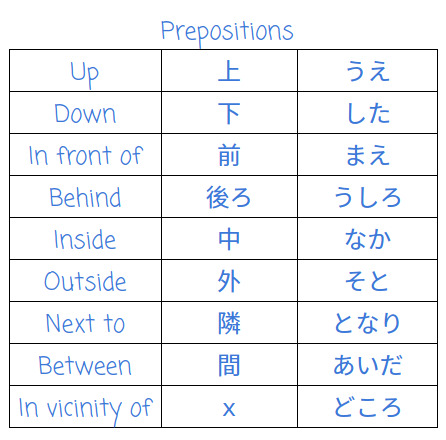
There are two forms of sentence structure you can use with prepositions.
topic は something の position(preposition) に あります・います
something の position に subject が あります・います
3K notes
·
View notes
Photo

Self-Introduction | 自己紹介「じこしょうかい」 Hey guys, today we’re gonna look into self-introductions in Japanese. I’m going to try and go into some detail, and provide examples of the different topics you can talk about in your introduction! I’ll use random information in the examples, so just substitute those details for your own when practicing or writing your own introductions! Meet someone for the first time | 初めて人に会う 「はじめてひとにあう」 When you meet someone for the first time in Japan you should say 始めまして「はじめまして」 or よろしくお願い「よろしくおねがい」 (or both) and bow. はじめまして is generally translated as “Nice to meet you” but its literal translation is ‘first time’, so it’s like saying “It’s my first time meeting you”. よろしくお願い is kind of hard to translate directly into English, but it also basically means “Nice to meet you” and “Please look after me”. In response to よろしくお願いします, you can say こちらこそよろしくお願いします which basically means “It’s nice to meet you, too”. The level of politeness that you should use when speaking to the person for the first time depends on who that person if. If it’s a boss/teacher, someone in a higher position than you, or someone that is older than you then you should definitely use keigo 「敬語・けいご」! But if it’s someone the same age as you, you can get away with using teineigo 「丁寧語・ていねいご」!And if it’s a friend of a friend that is a similar age to you, then it would be fine to use informal language! An example of a basic introduction would be; トム:始めまして。トムです。よろしくお願いします。 ベッキー:始めまして。ベッキーです。こちらこそよろしくお願いします。 Introduction | 自己紹介「じこしょうかい」 If you’re in a situation where you have to provide more details in your self-introduction, I would follow this guideline:
Say your full name (say your last name first, and then your first name).
Say where you’re from (you can go into detail and say the name of the country you’re from, where you were born, where you live, etc.)
Say your age.
Here is where you can talk about anything really: occupation, studies, hobbies and interests, favourite things, etc.
Finish off with a polite greeting.
So for example you could say something like: 始めまして、ハリス・ベッキーと申します。生まれはブリズベーンですが、育ちはシドニーです。二十四歳です。私は大学生です。学部の二年生です。私の専攻は言語学です。趣味は日本語を勉強することです。よろしくお願いします。 Nice to meet you. My name is Becky Harris. I was born in Brisbane, but grew up in Sydney. I’m 24 years old. I’m a university student. I’m in my second year. My major is linguistics. My interest is studying Japanese. Please look after me. It’s important to note that when saying your own name, you shouldn’t attach suffixes such as ~さん、~ちゃん、etc. to your own name because it’s considered rude to address yourself like that. Hobbies My hobby is…・私の趣味は….・わたしのしゅみは…. Cooking・料理をする ・りょうりをする Dancing・ダンシングをする Hanging out with friends・友達に会う・ともだちにあう Listening to music・音楽を聞く・おんがくをきく Reading・読書・どくしょ Singing・歌う・うたう Sports・スポーツをする Studying・勉強をする・べんきょうをする Surfing the net・ネットにのる Watching movies・映画を見る・えいがをみる Occupation I’m an…・私は…です Doctor・医者・いしゃ English Teacher・英語の先生・えいごのせんせい Hairdresser・美容師・びようし Nurse・看護師・かんごし Office worker・会社員・かいしゃいん Photographer・写真家・しゃしんか Shop assistant・店員・てんいん Teacher・先生・せんせい University student・大学生・だいがくせい Vlogger・ブロガー
3K notes
·
View notes
Text
Japanese Book Publishing Vocabulary

文芸(ぶんげい) - (art and) literature
読書(どくしょ) - reading (books)
ページを捲る(。めく。)- to turn (e.g. the page)
飛ばし読み+する(と。よ。)- skimming the pages, skipping words, reading quickly (literally “jump reading”)
読書家(どくしょか) - great reader
書店(しょてん) - bookshop, bookstore
書架(しょか) - bookshelf
執筆(しっぴつ) - writing(e.g. as a profession)
書籍(しょせき) - publication, book
出版(しゅっぱん) - publication
出版物(しゅっぱんぶつ) - publication(s)
出版する(しゅっぱん。) - to publish
購読(こうどく) - subscription (e.g. of a magazine)
編集(へんしゅう) - editing, editorial, compilation
営業(えいぎょう) - business, sales, trade
販売(はんばい) - sales, selling
企画(きかく) - project
*営業企画(えいぎょうきかく)- sales/ operation project
促進(そくしん) - promotion, marketing
児童書(じどうしょ) - children’s book(s)
雑誌(ざっし) - magazine
百科事典(ひゃっかじてん)- encyclopedia
随筆(ずいひつ) - essay, miscellaneous writings, literary jottings
索引(さくいん) - index, indices
目次(もくじ) - table of contents
解説(かいせつ) - explanation, commentary
粗筋(あらすじ) - outline, summary
台詞(せりふ)—>セリフ- one’s line, speech, dialogue in writing (normally written in katakana)
評論(ひょうろん) - criticism, critique
評判(ひょうばん) - fame
傑作(けっさく) - masterpiece
名作(めいさく) - famous piece of work/art
無名(むめい) - unsigned, anonymous; unpopular
Essential verbs:
読む(よ。)- to read
書く(か。)- to write
売る(う。)- to sell
買う(か。)- to buy
3K notes
·
View notes
Photo

Medical Terminology! YAY! ✺◟( • ω • )◞✺
Just more fun words to know. :)
◎━━━━━━━━━━━◎ Acne にきび : 面皰 Allergy アレルギー Asthma ぜんそく : 喘息 Bee sting ハチさしきず : ハチ刺し傷 Bruise だぼくしょう : 打撲傷 Burn やけど : 火傷 Cold かぜ : 風邪 Constipation べんぴ : 便秘 Cough せき : 咳 Diarrhea げり : 下痢 Dizziness めまい : 目眩 Ear infection じえん : 耳炎 Fatigue ひろう : 疲労 Fever ねつ : 熱 Flu インフルエンザ Food poisoning しょくちゅうどく : 食中毒 Frostbite とうしょう : 凍傷 Headache ずつう : 頭痛 Heartburn むねやけ : 胸焼け Hives じんましん : 蕁麻疹 Indigestion しょうかふりょう : 消化不良 Ingrown nail かんにゅうそう : 陥入爪 Itchy かゆい : 痒い Lump こぶ : 瘤 Nausea はきけ : 吐き気 Nosebleed はなぢ : 鼻血 Pain くつう : 苦痛 Rash はっしん : 発疹 Runny nose はなみず : 鼻水 Sore throat のどのいたみ : 喉の痛み Sprain ねんざ : 捻挫 Sunburn ひやけ : 日焼け Toothache しつう : 歯痛 Vomiting おうと : 嘔吐 ◎━━━━━━━━━━━◎
3K notes
·
View notes
Text

Fillers words are those small interruptions we put in our sentences whenever we talk. Mostly shunned upon when writing papers, or giving speeches, but in casual conversations it pops up all the time.
There are times where I just end up saying, “um,” “like,” “uhh,” and so on. You know, things like that and was curious how I can also transfer that blank state of mind in another language.
Well, that and it gives you time while you’re thinking of the right words for your target language. It sounds more natural than saying the English filler words and it won’t confuse the native speakers as much.
These are the filler words in the languages I’m learning:
SPANISH
Pues – Well
A ver – Let’s see
Digo – I say
O sea – I mean
Entonces – So/therefore
Asi que – So/therefore
Bueno – Well
Es que – It’s just that
Este – Umm/uhh
La cosa es – The thing is
A lo que me refiero es – What I refer to is
JAPANESE
えーと [eeto] – Umm
あのう [ano] – Well/say
その [sono] – That/the
ええ [ee] – Uhh
なんか [nanka] – Something
それで [Sore de] – So
You can extend the way you say it such as eeeeto, or sonooo.
ITALIAN
Meno male – Thank goodness
Allora – So
Ma dai – Come on
Quindi – Therefore
Vediamo un po’ – Let me see
Siccome – Seeing as/since
Visto che – Seeing as
Comunque – Anyway
A proposito – By the way
Per la maggior parte – For the most part
Forse – Maybe
Magari – Perhaps
RUSSIAN
Ну – Well
Это/эта – Well
Типа – well, kinda
Как бы – Sort of
В общем – Basically, so
Слышь – Y’know
В принципе – Theoretically
Это самое – Whatsit, whatchamacallit
Собственно – As a matter of fact
Значит – So/well then
Скажем – Say
Однозначно – Sure thing
Так сказать – Sort of/kind of
Жесть – Sick/awesome/sick-awesome/harsh/heavy
В натуре – Actually, for real
Прямо скажем – To be honest
Короче – Bla-bla-bla, long story short
То сё, пятое десятое – This and that
Реально – For real
На самом деле – Actually
Круто – Cool
Конечно – Totally
Прикольно/ по приколу – Fun
FRENCH
Alors – So
Allez – Right/Go ahead
Euh – Uhh
Quoi – What
Bref – Basically
Bien – Well
En fait – In fact
Quand même – Still/anyway
Tu sais – You know
Bon/bon ben – Well
C’est-à-dire – That is to say
A la limite – I mean/I suppose
PORTUGESE
Ou seja – Like/I mean/That is to say
Bom – Well/um/ok
Então – So/then
Pois – So/then
Ahn/Hum – Um/er
Mas – But
Bem – Well
Certo – Right
Certo/é assim – Right/isn’t it
Como – Like
Try using these words as you slowly start forming sentences, or just use it whenever you’re studying in your target language.
Feel free to add more, or let me know if I missed anything! Happy studies!
5K notes
·
View notes
Text
Beginners Japanese textbooks
So I get a lot of questions here and on Instagram about the books I use for Japanese and what I would recommend to beginners. So I thought I’d put together a little list of books I would suggest you start off with as a beginner in Japanese (these are all books I have used myself or had/would consider using) Obviously I’m not saying you need all of these books, pick one and see how it goes (although I do recommend using more than one resource)! I may do another post like this for intermediate learners if there’s enough interest (with the textbook series they will take you to a higher level, but this is just recommendations as a starting point) ^^
Learning Hiragana and Katakana Flashcards
Japanese Kanji Flashcards Volume 1
Japanese Kanji for Beginners
Japanese From Zero Series
Kana From Zero | Hiragana From Zero | Katakana From Zero | Kanji From Zero
Japanese From Zero 1 | Japanese From Zero 2 | Japanese From Zero 3 |
Japanese From Zero 4
Genki Series
Level 1 textbook | Level 1 workbook | Level 2 textbook | Level 2 workbook
Japanese For Busy People Series
Kana workbook | Level 1 kana ver | Level 1 romaji ver | Level 2
Basic Japanese
Japanese for Beginners
A Dictionary of Basic Japanese Grammar
Essential Japanese Grammar
Essential Japanese Vocabulary
600 Basic Japanese Verbs
6K notes
·
View notes
Photo

Common Japanese Verbs Hey guys, below is a list of what I believe to be common Japanese verbs! I’ll also be posting a list of common adjectives, adverbs, and nouns in the future too, so keep an eye out for them! There are a number of ways that verbs have been categorised in Japanese, such as Ichidan 「一段」 and Godan 「五段」, and う verbs and る verbs. I’ve listed them all in the titles for easier understanding, depending on what distinction you’re familiar with. These classifications come in handy when you need to conjugate verbs so try to remember what category they belong to! うverbs・五段「ごだん」・Class 1: To begin (something starts on its own)・始まる・はじまる To buy・買う・かう To close・閉まる・しまる To die・死ぬ・しぬ To drink・飲む・のむ To eat・食べる・たべる To end・終わる・おわる To enter・入る・はいる To give back (return something to someone)・返す・かえす To go・行く・いく To go back・戻る・もどる To have/exist (inanimate objects)・ある To know・知る・しる To learn・習う・ならう To listen・聞く・きく To make・作る・つくる To meet・会う・あう To play・遊ぶ・あそぶ To receive・貰う・もらう To repair・直す・なおす To return・帰る・かえる To ride on・乗る・のる To run・走る・はしる To send・送る・おくる To sit・座る・すわる To speak・話す・はなす To swim・泳ぐ・およぐ To take・取る・とる To take off (shoes, clothes)・脱ぐ・ぬぐ To understand・分かる・わかる To use・使う・つかう To wait・待つ・まつ To wake up・起こす・おこす To wash・洗う・��らう To write・書く・かく るverbs・一段「いちだん」・Class 2: To answer・答える・こたえる To bathe・浴びる・あびる To be able・出来る・できる To be born・生まれる・うまれる To be enough・足りる・たりる To begin (to start something)・始める・はじめる To borrow・借りる・かりる To break・壊れる・こわれる To check・調べる・しらべる To cut・切れる・きれる To exceed・過ぎる・すぎる To find・見つける・みつける To forget・忘れる・わすれる To get off・降りる・おりる To get tired・疲れる・つかれる To give・あげる To go out・出る・でる To greet・迎える・むかえる To have/exist (animate objects)・いる To help・助ける・たすける To make a mistake・間違える・まちがえる To open・開ける・あける To remember・覚える・おぼえる To see・見える・みえる To show・見せる・みせる To sleep・寝る・ねる To stop・止める・やめる To teach・教える・おしえる To think・考える・かんがえる To wear・着る・きる Irregular verbs・Class 3: To come・来る・くる To do・する
する verbs: する verbs are made by adding する to a noun. To ask questions・質問する・しつもんする To be surprised・びっくりする To call・電話する・でんわする To do the cleaning・掃除する・そうじする To do the washing・ 洗濯する・せんたくする To get married・結婚する・けっこんする To go shopping・買い物する・かいものする To have a meal・食事する・しょくじする To reserve・予約する・よやくする To study・勉強する・べんきょうする To take a walk・散歩する・さんぽする To travel・旅行する・りょこうする
7K notes
·
View notes
Text
Japanese listening practice for beginners - Youtube videos
“キッズボンボン for Children” channel
All of the videos on this list have Japanese subtitles. It is mostly in ひらがな and the words are separated. This and the fact that these videos are aimed for children, makes them great for beginners.
PEACH BOY - MOMOTARO (JAPANESE) Japanese classical stories | fairy tale
KINTARO (Japanese) Japanese classical stories | fairy tale
USHIWAKAMARU (JAPANESE) Japanese classical stories | fairy tale
SHINING PRINCESS (JAPANESE) Japanese classical stories | fairy tale
THE TONGUELESS SPARROW (JAPANESE) Japanese classical stories | fairy tale
THE DANCING KETTLE (JAPANESE) Japanese classical stories | fairy tale
THE STORY OF THE MONKEY AND THE CRAB (JAPANESE) Japanese classical stories | fairy tale
CLACK CLACK MOUNTAIN (JAPANESE) Japanese classical stories | fairy tale
OLD MAN WITH THE LUMP (JAPANESE) Japanese classical stories | fairy tale
OLD MAN FLOWER (JAPANESE) Japanese classical stories | fairy tale
THE YOUNG MONK IKKYU (JAPANESE) Japanese classical stories | fairy tale
THE GRATEFUL CRANE (JAPANESE) Japanese classical stories | fairy tale
URASHIMA TARO (JAPANESE) / うらしまたろう - 浦島太郎(日本語版)Japanese classical stories | fairy tale
THE SNOW WOMAN (JAPANESE) Japanese classical stories | fairy tale
THE ROLLING RICE BALL (JAPANESE) Japanese classical stories | fairy
INCH BOY (JAPANESE) Japanese classical stories | fairy tale
THE CHILD GODS (JAPANESE) Japanese classical stories | fairy tale
THE STORY OF THE ZODIAC (JAPANESE) Japanese classical stories | fairy tale
All of these videos have an English version on this channel. Search for them or click on this playlist. You can use both versions to study what’s being said.
SNOW WHITE (JAPANESE) fairytale | Folktales | bedtime stories
THUMBLINA (JAPANESE) | Folktales | bedtime stories
JACK AND THE BEANSTALK (JAPANESE) | Folktales | bedtime stories
PETER PAN (JAPANESE) | Folktales | bedtime stories
A DOG OF FLANDERS (JAPANESE) | Folktales | bedtime stories
PINOCCHIO (JAPANESE) | Folktales | bedtime stories
PUSS IN BOOTS (JAPANESE) | Folktales | bedtime stories
ALADDIN AND THE MAGIC LAMP (JAPANESE) | Folktales | bedtime stories
THE WOLF AND THE SEVEN LITTLE GOATS (JAPANESE) | Folktales | bedtime stories
CINDERELLA (JAPANESE) | Folktales | bedtime stories
THE LITTLE MATCH SELLER | Folktales | bedtime stories
HE MERMAID PRINCESS | Folktales | bedtime stories
LITTLE RED RIDING HOOD | Folktales | bedtime stories
THE THREE LITTLE PIGS (JAPANESE) | Folktales | bedtime stories
THE ADVENTURE OF TOM SAWYER (JAPANESE) | Folktales | bedtime
THE WIZARD OF OZ (JAPANESE) | Folktales | bedtime stories
THE UGLY DUCKLING (JAPANESE) | Folktales | bedtime stories
ALICE IN WONDERLAND (JAPANESE) | Folktales | bedtime stories
All of these videos have an English version on this channel. Search for them or click on this playlist. You can use both versions to study what’s being said.
10K notes
·
View notes
Note
ah, I'mtrans (he/him pronouns), and was wondering which words I should use for stuff like "I, me, my"? like, boku is my right? I don't know any ohers though.
Hi! Thank you for your ask. First person pronouns (I, me, mine) can get pretty complex in Japanese, but that gives you much more freedom of expression than English. Let me give you a thorough description of each so you can make an informed decision on which one is right for you. :)
First Person Pronouns in Japanese
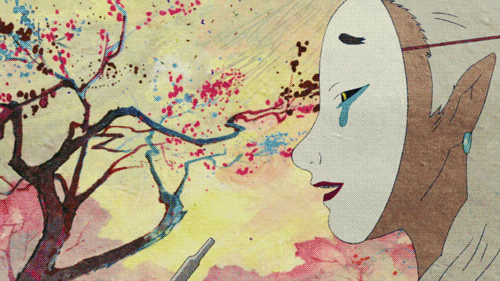
Who do you want to be?
In English, we only have one pronoun to express ourselves. “I.” It really doesn’t get any more boring than that.
Maybe that’s why personal pronouns are one of the most interesting aspects of Japanese in my opinion. I actually did a research paper on the history of second-person pronouns (you) in Japanese back in uni.
Why does Japanese have so many ways to say “I?” As I’m sure most of you know, social class and politeness is a fundamental aspect of Japanese culture and language. Different personal pronouns for oneself and others clarify the social standing of each person in the conversation.
I’ll introduce the commonly used ones in order of politeness (most polite to least polite), and then cover the rare ones.
私 Watakushi
Gender: neutral
Plural Form: Watakushi-tachi
This is the most formal personal pronoun, and is used in very formal situations, like when you’re speaking to the president of a company or someone very important. In writing, because it has the same kanji as “watashi,” it is commonly written in hiragana.
私 Watashi
Gender: neutral (kind of)
Plural Form: Watashi-tachi, watashira
This is the most common personal pronoun.
Like the above watakushi, it conveys a sense of politeness. When used by men, it carries a note of humility and politeness.
However, it is the standard pronoun for women. Because we’re all supposed to be humble at all times? haha
So this is gender neutral and you can use it when you want to be polite.
あたし Atashi
Gender: Female
Plural form: Atashi-tachi, atashira
This is a bastardization of watashi.
It is casual and used exclusively by women. It sounds very feminine. In Japanese tv shows and anime, most male characters cross-dressing as women use “atashi” and it sounds very hyper-feminine. Like, if drag is hyper-feminine dress, “atashi” is the hyper-feminine way of speaking that would go with it.
うち Uchi
Gender: Female
Plural: Uchira
This comes from the word 家 uchi. The kanji literally means “house,” but it can be used to mean “my family” or “us” in certain contexts. For example:
Japanese: 田中さんは自宅でどんな醤油を使っていますか?うちはやっぱりキッコーマンです。
Romaji: Tanaka-san ha jitaku de donna shouyu wo tsukatte imasu ka? Uchi ha yappari Kikkoman desu.
English: Tanaka-san, what kind of soy sauce do you use at home? We use Kikkoman.
From that use of uchi we get the personal pronoun uchi. This is generally used by young girls, college age and younger. It definitely has a very Valley Girl feel to it and isn’t professional.
僕 Boku
Gender: Mostly male, but female in certain contexts
Plural: Boku-tachi, bokura
If you want to rely on tropes to understand what sort of person would use “boku,” think of those harem anime. The nicest, sweetest guy almost always uses “boku” for himself. Contrasted with “ore,” it sounds softer, humbler, and kinder.
It can also sound very slightly childish. Well, not childish. It sounds young. My boss’s boss, who is in his 60′s, uses boku instead of ore and it always strikes me as peculiar because he’s kinda too old to use boku. It makes him sound very humble and kind and the most approachable person ever.
Boku is a good pronoun to use if you want to give off a soft, friendly, safe aura. While it isn’t as polite as watashi, you can still use it in formal settings.
Occasionally, this pronoun is used by women. Specifically, it is used by female singers. It doesn’t matter the band, it doesn’t matter the song–every single female singer uses “boku” in their songs to refer to themselves.
“Why?” you may ask. This is because singers want to connect to their listeners, and “watashi” is too formal and creates a bit of a barrier. “Atashi” and “uchi” are too feminine/childish, and “ore” is way too harsh. So “boku” became the choice for female singers.
俺 Ore
Gender: Male
Plural: Orera, ore-tachi
Going back to anime tropes, “ore” is used by the “bad boy” or the “I don’t give a shit what you think” boy. Inuyasha, Kurosaki Ichigo (Bleach), and Eren Yeager (Attack on Titan) all use “ore.” This is in contrast to “nicer” characters in the shows that use “boku,” like Miroku (Inuyasha), Ishida Uryuu (Bleach), and Armin Arlert (Attack on Titan).
Ore is considered “rough and tough” because it is very informal. It is used when the people you are talking to are within your inner circle or are beneath you. So you would never use it when talking to, say, your boss’s boss. (You might be able to use it with your boss if you are close with him and you have a friendship though.)
That said, the vast majority of Japanese men I know use ore more than boku. So it wouldn’t be strange if you used ore. Just be aware that it isn’t as polite as you may want to be.
And now for the rare pronouns…
Disclaimer: DON’T USE THESE. Japanese people will think you’re super weird and not in a good way. But you are likely to hear them in anime, dramas, or conversations.

👆 Me outside your door if you use “sessha” to refer to yourself unironically
拙者 Sessha
Literally “Unskilled one,” this is a very humble way to refer to yourself. It was commonly used by samurai, and probably the most famous anime character that uses it is Kenshin from Ruroni Kenshin. DO. NOT. USE. IT. unless you are jokingly pretending to be a samurai for like one sentence.
吾輩 Wagahai
Though no longer in common usage, there isn’t a Japanese person that isn’t aware of this pronoun because of Natsume Soseki’s famous book Wagahai ha Neko de Aru (I Am a Cat). Written in 1905, it’s about a cat who observes its owners and the uneasy mix of Western culture and Japanese traditions and the aping of Western customs.
“Wagahai” is the pronoun a nobleman or someone of very high rank would use to refer to himself, so the fact that a common house cat is using it to refer it self shows that, even a hundred years ago, everyone thought that cats were self-important.
我 Ware
Plural: 我々 Wareware, 我ら Warera
To be honest, I don’t know a lot about this one. You hear it quite a bit in anime, and it’s always said by some stuffy important old guy. So…it’s probably for stuffy, old, important men to use? Just don’t use it.
己 Ora
Used exclusively by men, the only somewhat main character I’ve seen use this pronoun is King from Seven Deadly Sins. In manga, it is usually written in hiragana or katakana. It has a very “country bumpkin” feel to it. A simple country person who doesn’t know the ways of the world (but not in a bad way).
俺様 Oresama
DO NOT USE THIS UNDER ANY CIRCUMSTANCES. It is the rudest personal pronoun “ore” with the honorific “sama” attached to it.There is nothing ruder, nothing more “you are the dirt I walk upon” than this. If you use this and you’re not joking, the Japanese people around you will instantly dislike you.
儂 Washi
Usually written in hiragana or katakana, “washi” is the way that old people refer to themselves. It’s gender-neutral. Like…idk, 60 and upwards? So don’t use this unless you fall into that age range.
某 Soregashi
I think I’ve only seen this once, used by a character in Rurouni Kenshin who was quickly killed. It was used by samurai. So unless YOU are a samurai from 150 years ago, don’t use it. It’s so low frequency that if you used it as a joke I doubt Japanese people would understand. But hey. You learned a cool new word.
The End!
I hope that this post helps you choose the pronoun that fits you best. ♡
2K notes
·
View notes
Text
Moderately Interesting Japanese Ep. 8 Hokkaido Dialect
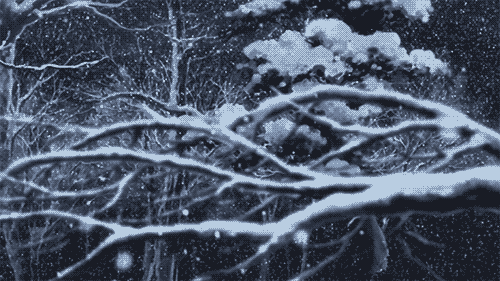
The typical winter scenery of Hokkaido.
One of my favorite aspects of language learning is studying dialects. I am fascinated by how language branches and adapts to new environments like some form of linguistic natural selection. Japanese is rife with interesting dialects, some of which are so different from the standard that they can sound like a totally different language to the untrained ear. I thought I’d make a series of posts highlighting different dialects in Japanese. Since this sort of post will take a bit more research on my end and I plan to find native speakers of the dialect to confirm with, they won’t be very regular, but I hope that you enjoy them!
What are some of the main Japanese dialects?
Firstly, let me tell you how to say “dialect” in Japanese, because I know I’m gonna use it and I don’t want to cause any confusion.
方言 (hougen) Dialect
___弁 (__-ben) __ Dialect, so “Osaka Dialect” is “Osaka-ben.”
I daresay that just about 100% of all Japanese learners are familiar with Tokyo-ben, because it is Standard Japanese. The next most popular dialect is Kansai-ben, which is spoken in the Kansai region (Osaka, Hiroshima, etc.). The Kansai Dialect can be broken down into several smaller, regional dialects. Next would probably be Okinawa-ben.
(Caution! Some people, particularly Okinawans, consider Okinawan Japanese to be a language independent from Japanese, and they can be offended if you refer to it as a dialect. Japan’s official stance is that Okinawan is a dialect, though, so I am calling it a dialect in my posts.)
Now without further ado, let’s actually start learning about one of these dialects!
Hokkaido-ben, namara ii!
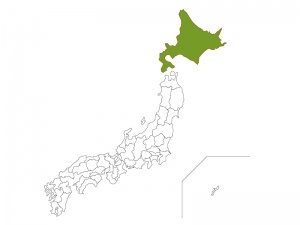
Hokkaido is the island in green. It’s the biggest prefecture in Japan by far.
I am a foreigner and Japanese is not my native language, but I have been living on the island of Hokkaido for 5 years now and am very comfortable with the Hokkaido dialect, so I chose to introduce it to you first. Also, it’s not one that gets talked about a lot, so I figured maybe there weren’t many posts about it.
Hokkaido is the northernmost island of Japan, and it wasn’t settled and officially incorporated as part of Japan until the late 1800′s. There is a group of indigenous people here called the Ainu who speak a language completely different from Japanese, but their language has not bled into Hokkaido-ben. (Many place names in Hokkaido are from Ainu, though).
Because Hokkaido was settled so late in history compared to the other islands of Japan, their dialect doesn’t differ drastically from Tokyo-ben. There are some minor intonation differences that, frankly, I don’t feel confident explaining. I have internalized the intonations through exposure, but I’ve never been taught it and don’t really know what is correct. So I’m not going to talk about tonal differences, and instead focus on the different words and a wee bit of grammar.

投げる Nageru
Standard Japanese: 捨てる suteru
English: to dispose of (lit. “to throw/toss”)
To an English speaker, “throw away” feels just as natural as “dispose of.” But to people outside of Hokkaido, it sounds very unusual and the image it conjures is comedic, like someone is hurling trash into the garbage can like it’s the opening pitch at the World Series.
Example: そこの古い新聞を投げていいよ。 Romaji: Soko no furui shinbun wo nagete ii yo.
Standard: そこの古い新聞を捨てていいよ。 Romaji: Soko no furui shinbun wo sutete ii yo.
English: You can throw away those old newspapers there.

おっかない Okkanai
Standard: 危ない abunai
English: dangerous, scary, a “close call”
My hostmom uses this with me, like, all the time. According to her, I’m always doing okkanai things, like walking alone at night or *gasp* going outside with wet hair. I love her so much haha.
Example: うちの子が熊のぬいぐるみだと思って遊んでいたのは本当の子グマだった。おっかなかったわ! Romaji: Uchi no ko ga kuma no nuigurumi da to omotte asonde ita noha hontou no koguma datta. Okkanakatta wa!
Standard: うちの子が熊のぬいぐるみだと思って遊んでいたのは本当の子グマだった。危なかったわ! Romaji: Uchi no ko ga kuma no nuigurumi da to omotte asonde ita noha hontou no koguma datta. Abunakatta wa!
English: Our kid thought he was playing with a teddy bear, but it was actually a live bear cub. What a close call!
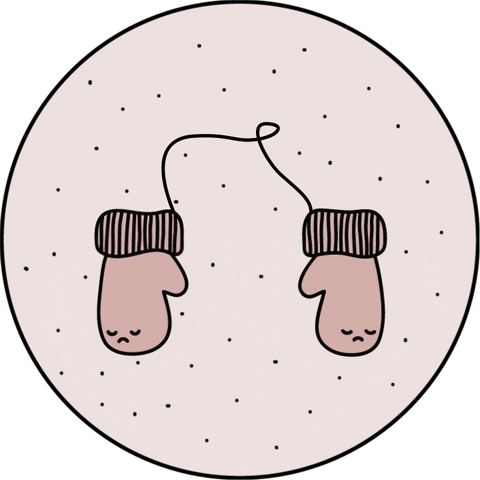
(手袋を)履く (Tebukuro wo) haku
Standard:(手袋を)はめる (tebukuro wo) hameru
English: to put on (gloves)
Winter in Hokkaido is long and cold. Gloves are one of the most essential articles of clothing here, and I have heard/used “haku” so much that “hameru” sounds incorrect to me. The “haku” sounds funny to other Japanese people because it is used for putting on socks, underwear, and pants, and they will imagine you putting socks or panties on your hands instead of gloves.
Example: 外は寒いから、手袋を履きなさい。 Romaji: Soto ha samui kara, tebukuro wo hakinasai.
Standard: 外は寒いから、手袋をはめなさい。 Romaji: Soto ha samui kara, tebukuro wo hamenasai.
English: It’s cold out, so put on your gloves.
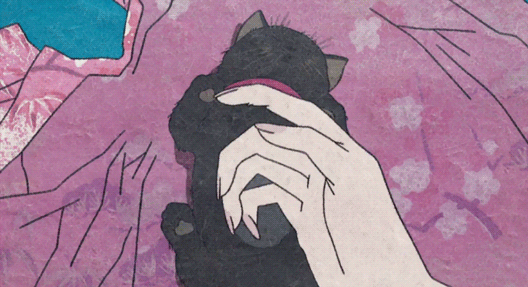
めんこい Menkoi
Standard Japanese: 可愛い kawaii
English: cute
I included this because it’s one of the famous aspects of Hokkaido-ben, but I actually don’t hear it used that much. I tend to see it on souvenir shirts for tourists more than in actual conversations.
Example: この子猫はめっちゃめんこい! Romaji: Kono koneko ha meccha menkoi!
Standard: この子猫はめっちゃかわいい! Romaji: Kono koneko ha meccha kawaii!
English: This kitten is super cute!
Note: Even though it is functioning as an adjective and ends with an “i,” it is not an “i” adjective. It is a “na” adjective.

あずましくない Azumashikunai
Standard: 居心地が悪い、嫌 igokochi ga warui, iya
English: uncomfortable (surroundings), unpleasant
This is a word that many Hokkaido people use but struggle to explain. Azumashikunai describes any place that you find unpleasant or uncomfortable, maybe due to it being too crowded, or too empty, or because it’s very cramped, for example.
Example: 日曜日の札幌駅が人混みであずましくない。 Romaji. Nichiyoubi no Sapporo-eki ga hitogomi de azumashikunai.
Standard: 日曜日の札幌駅が人混みで嫌だ。 Romaji: Nichiyoubi no Sapporo-eki ga hitogomi de iya da.
English: Sapporo Station is always crowded on Sundays and I don’t like it.

いずい Izui
Standard: none
English: different (in a bad way), off-kilter, something is “off”
Hokkaido people really struggle to explain izui because Standard Japanese doesn’t have an equivalent for it, but I think it can be likened to “off” in English. You got something in your eye but can’t find it and your eye feels funny? Your eye is izui. You have a hair in your shirt and can’t find it? That feels izui. Sometimes it can be a mysterious ache not painful enough to warrant a visit to the doctor, or sometimes it can just be a sense that something is “off.”
Example: 目にゴミが入って、いずい。 Romaji: Me ni gomi ga haitte, izui.
Standard:目にゴミが入って、痛い。 Romaji: Me ni gomi ga haitte, itai.
English: Something got in my eye and now it feels off.

汽車 Kisha
Standard: 電車 densha
English: (train, lit. “steam engine”)
The first time I came to Japan, I could just barely hold down an everyday conversation in Japanese. My hostparents (hostdad especially) both spoke very strong Hokkaido-ben, and during my first meal with them my hostdad asked if I had traveled from the airport to their city by “steam engine,” and I was just baffled. Wait, did he just say locomotive? What year is it? Are steam engines still a thing in Japan?! Then my kind hostmother explained that he meant regular, modern trains.
Example: すみません、函館ゆきの汽車はいつ出発しますか? Romaji: Sumimasen, Hakodate-yuki no kisha ha itsu shuppatsu shimasu ka?
Standard: すみません、函館ゆきの電車はいつ出発しますか? Romaji: Sumimsaen, Hakodate-yuki no densha ha itsu shuppatsu shimasuka?
English: Excuse me, when does the train bound for Hakodate leave the station?

しゃっこい Shakkoi
Standard: 冷たい Tsumetai
English: Cold
Being the northernmost prefecture and next door to Russia, it’s only natural that Hokkaido-ben have its own word for “cold.”
Example: このかき氷ってめっちゃしゃっこい! Romaji; Kono kakigoori tte meccha shakkoi!
Standard: このかき氷ってめっちゃ冷たい! Romaji: Kono kakigoori tte meccha tsumetai!
English: This shaved ice is super cold!

とうきび Toukibi
Standard: とうもろこし Toumorokoshi
English: corn
Hokkaido is famous for their sweet corn, and “toukibi” is a word you will hear a lot here as a result. A popular summer snack is corn on the cob with soy sauce and butter, and it’s made just like in the gif above! Japanese people tend to eat it using a toothpick, picking off kernel by kernel. So when I just rocked up, grabbed an ear and started going to town on it, they thought I was a barbarian hahaha.
Example: やっぱり、とうきびに醤油だね! Romaji: Yappari, toukibi ni shouyu da ne!
Standard: やっぱり、とうもろこしに醤油だね! Romaji: Yappri, toumorokoshi ni shouyu da ne!
English: Soy sauce really does go good with corn!

なまら Namara
Standard: とても totemo、結構 kekkou
English: very, super, rather
This word is like “menkoi,” in that it is famous throughout Japan for being Hokkaido-ben, but I rarely hear it in actual conversations. I hear people use it when they are surprised by something. “Namara oishii” has a nuance of “It’s (actually) very tasty.”
Example: 曇ってるけど、今日の天気はなまらいい。 Romaji: Kumotteru kedo, kyou no tenki ha namara ii.
Standard: 曇ってるけど、今日の天気はけっこういい。 Romaji: Kumotteru kedo, kyou no tenki ha kekkou ii.
English: It’s cloudy today, but it’s still pretty good weather.

なんぼ? Nanbo?
Standard: いくら? Ikura?
English: How much?
My friend asked me to go get a couple drinks from the convenience store. I came back with a bottle for her and for me and she asked, “Nanbo datta?” I thought that bo was maybe a counter for things, and desperately tried to figure out what we were supposed to be counting. Then she explained that, for whatever reason, “nanbo” means “how much (does something cost)?”
Example: そのお弁当はめっちゃ美味しそう!なんぼだった? Romaji: Sono obentou ha meccha oishisou! Nanbo datta?
Standard: そのお弁当はめっちゃ美味しそう!いくらだった? Romaji: Sono obentou ha meccha oishisou! Ikura datta?
English: That bento looks super good! How much was it?

ボケる Bokeru (for produce)
Standard: 腐る kusaru
English: go bad (produce)
In standard Japanese, “bokeru” means “to go senile” or “to develop dementia/Alzheimer’s.” While I wouldn’t say it’s a slur bad enough that it would be bleeped out, it certainly isn’t a kind way to refer to aging.
So when my host mom told me, “I would give you some apples, but they’re all senile” I had no clue what she was going on about. But then she showed them to me, and they were all wrinkled like this:
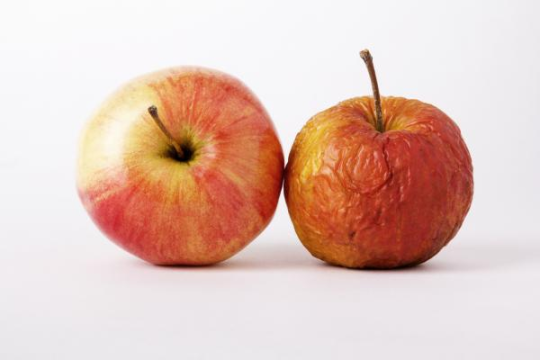
Not exactly the most appetizing, but also not entirely rotten. I’m really not sure why Hokkaido-ben likens produce to senility, but if I had to guess, I’d say it’s because pretty much every single person with Alzheimer’s/dementia is wrinkled.
Example: このリンゴはボケてるから、パイでも作ろうか… Romaji: Kono ringo ha boketeru kara, pai demo tsukurou ka…
Standard: このリンゴは腐りかけてるから、パイでも作ろうか… Romaji: Kono ringo ha kusarikaketeru kara, pai demo tsukurou ka…
English: These apples are about to go bad, so I guess I’ll make a pie…
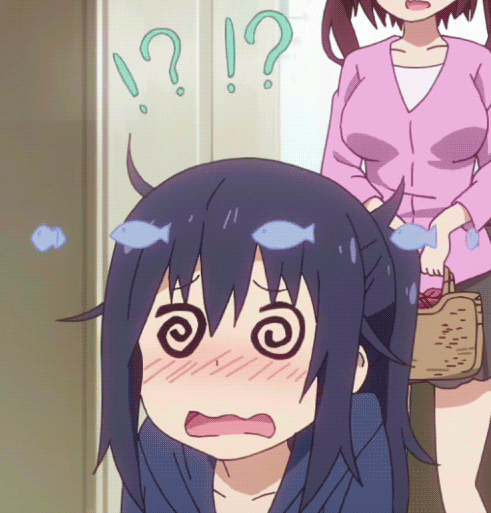
~べ ~be
Standard ~だろう、~でしょう darou, deshou
English: …, right?
This is probably the most famous aspect of Hokkaido-ben. Japanese people get a real kick out of it when this white girl uses it haha. “~be” is a sentence-ending particle that functions about the same as “darou” or “deshou” in that it:
asserts the speaker’s confidence in the likelihood of something
asks for the listener’s confirmation
This sentence-final particle has its roots in the particle ~べし (~beshi) found in Classical Japanese, which had a similar purpose. Other forms of ~beshi survive in Modern Standard Japanese with the words べき (beki) and すべく (subeku).
Here are two examples, one for each function ~be fulfills.
Example 1: 君の飛行機はあと5分に出発するって?間に合わないべ! Romaji: Kimi no hikouki ha ato 5 fun ni shuppatsu suru tte? Maniawanai be!
Standard: 君の飛行機はあと5分に出発するって?間に合わないでしょう! Romaji: Kimi no hikouki ha ato 5 fun ni shuppatsu suru tte? Maniawanai deshou!
English: You said your plane takes off in 5 minutes? There’s no way you’ll make it!
Example 2: このサラダに白菜も入ってたべ? Romaji: Kono sarada ni hakusai mo haitteta be?
Standard: このサラダに白菜も入ってたでしょう? Romaji: Kono sarada ni hakusai mo haitteta deshou?
Standard: There was napa cabbage in this salad too, wasn’t there?

~れ ~re
Standard: ~なさい ~nasai
English: imperative command
I really don’t like giving grammar explanations because it’s been a long time since I’ve formally studied Japanese grammar and I’m scared of explaining something poorly or incorrectly. But an upper-elementary level Japanese learner should know that there are many different levels of imperatives in Japanese that vary in politeness. In order of rude to polite, we have:
Imperatives that end in an “e” sound or ろ, as in:
死ね!Shine! Die!
待て!Mate! Wait!
食べろ!Tabero! Eat!
Imperatives that end in tte, te, or de and are not followed by kudasai
死んで Shinde. Die.
待って Matte. Wait.
食べて Tabete. Tabete.
Imperatives that end in nasai. (These are most often used by parents/teachers to their children.)
死になさい Shininasai. Die.
待ちなさい Machinasai. Wait.
食べなさい Tabenasai. Eat.
Imperatives that end in tte, te, or de and have kudasai after them.
And then there’s super formal Japanese, but that’s a whole other kettle of fish.
Anyways. Back to the Hokkaido-ben. I went to a picnic here with a Japanese friend’s family, and her aunt gave me a plate of food and said, “Tabere!” I knew that this had to be an imperative, but I had never studied it before. It felt like it was the same as the rudest imperative, and I spent the whole rest of the picnic wondering what on earth I had done to have her family speak to me like that. Conventionally, they should have been using the -tte form or -nasai form with me.
After the party, I asked her, “Dude, what’s the ~re stuff for? Do they not like me?” I was close to tears I was so hurt and confused.
And that when she laughed and explained that the ~re is a facet of Hokkaido-ben, and it is the same in politeness and nuance as the ~nasai imperative used by parents and teachers to their children.
So I had spent several hours thinking that her family hated me, when really they were treating me like I was their own child!
Example: ちゃんと野菜を食べれ! Romaji: Chanto yasai wo tabere!
Standard: ちゃんと野菜を食べなさい! Romaji: Chanto yasai wo tabenasai!
English: Eat all of your vegetables properly.
The End!
This was a monster of a post. There are actually a few more words I wanted to introduce, but I had to cut it off at some point haha. I hope that you enjoyed this segment of Moderately Interesting Japanese. I plan to make more on the other dialects within Japanese, but they will take a considerable amount of time so they won’t be very often.
Thanks for reading!
3K notes
·
View notes
Photo
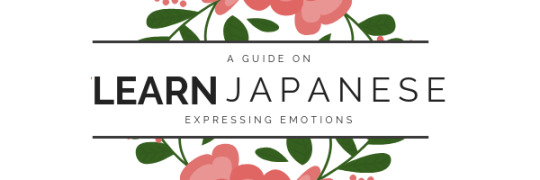
Expressing Your Emotions || 感情・かんじょう・Emotions Hey guys, today I’m going to list a couple different ways to express your emotions or feelings in conversation in Japanese! Adjectives・形容詞「けいようし」:
Amazing・凄い・すごい
Afraid・こわい
Bad・悪い・わるい
Difficult (emotionally)・辛い・つらい
Embarrassed・恥ずかしい・はずかしい
Fun・楽しい・たのしい
Happy・嬉しい・うれしい
Jealous・羨ましい・うらやましい
Sad・悲しい・かなしい
One adjective which might appear often in conversation is the word 「���バい・ヤバイ・やばい」which can be used to express a few different emotions depending on the context. I’ve heard it used to express both positive and negative emotions/feelings/thoughts like: dangerous, terrible, crap, awful, amazing, wow, cool. Nouns・名詞「めいし」:
Anger・怒り・いかり
Delight/Joy・喜び・よろこび
Emotions・感情・かんじょう
Feelings・気持ち・きもち
Feeling/Mood・気分・きぶん
Happiness・幸せ・しあわせ
Sadness・悲しみ・かなしみ
Examples・例「れい」:
Below I’m going to list a few examples of how to express your feelings in Japanese. It’s important to know that you don’t have to use 私は/僕は/俺は/etc. before stating your feeling because it’s obvious in the context that you’re expressing your own emotions!
Angry・Annoyed -
ひどい!・You’re awful/mean OR That’s awful!
ひどーーい!・You’re aaaawful! OR That’s aaaawful!
ムカつく!・むかつく!・I’m pissed off.
イライラする!・I’m irritated!
ウザイ・Annoying!
ちぇっ・チェ・tsk/Dang/Shoot
Confused -
どうしよう?・What am I gonna do?
Difficult -
辛い・つらい・It’s hard.
きつい・It’s hard.
Embarrassed -
あー、恥ずかしい!・あー、はずかしい!・I’m so embarrassed!
Happy -
嬉しい!・うれしい!・I’m happy!
嬉しいなあ!・うれしいなあ!・I’m so happy!
あー幸せ!・あーしあわせ!・I’m so happy!
やった〜!・Yay!
イェーイ!・Yaaay!
楽しい!・ How fun!
楽しすぎる !・Way too fun!
ワクワクする !・I’m getting excited!
わあ!・Wow!
すごい!・Wow/Great!
すごーい!・Woow!
すげえ!・Wow!
Jealous -
羨ましい!・うらやましい!・I’m jealous!
羨ましい―――!・うらやましいーーー!・I’m soooo jealous!
Nervous -
ドキドキする!・I feel nervous!
緊張する!・きんちょうする!・I’m nervous!
不安になる・ふあんになる・I’m anxious
Nostalgic -
懐かしい!・なつかしい!・This brings back memories.
Relieved -
安心した!・あんしんした!・I feel relieved.
よかった!・Whew!
あー、よかった!・I’m relieved!
Sad・Lonely -
悲しい!・かなしい!・I’m sad
泣きたくなる!・なきたくなる!・I feel like crying!
寂しい・さみしい/さびしい・I’m lonely
あーあ…・Oh well…
くすん・ぐすん・Sniffle
Scared -
びくびく・Symbolises being afraid or timid.
こわい!・I’m scared!
Shocked・Surprised -
うそ!・No way!
マジ?・まじ?・Really/No way/Seriously?
マジかー?・まじかー?・Really/No way/Seriously? (a little masculine)
マジで?・まじで?・Really?
えーー!うそ、マジで!?・What? No way!
え!・What?/Really?
えー!・What?/Really?
えーーっ!!・What?/Really?
うわー!・OMG
いや・イヤ・Why?/Oh
いややあー・Whyyy?
ありえない!・No way!/I can’t believe it!
信じられない!・しんじられない!・I can’t believe it!
皆さん、今どんな気持ち? Everyone, how are you feeling right now?
7K notes
·
View notes
Photo

JLPT Level: Unlisted, but the kanji are N5 and N3 respectively.
語り
Pronuncation: katari
speaking, talking, conversing, telling
草
Pronuncation: kusa
grass
So put the two together and you get “talking grass?” Not quite.
Katarigusa is a subject or topic that can be talked about forever, like the Roman Empire or Casablanca. You couldn’t call that baby Yoda meme katarigusa because it will (hopefully) die out as soon as the next stupidly cute and relatable character goes viral.
As for the etymology of katarigusa, despite the fact that the word “grass” is in this word, the real imagery behind it is that of seeds (種 tane). Each one of these topics is a seed that plants and sprouts into grass that fills a field. For this reason, you can sometimes see katarigusa written as 語り種 or 語りぐさ.
212 notes
·
View notes